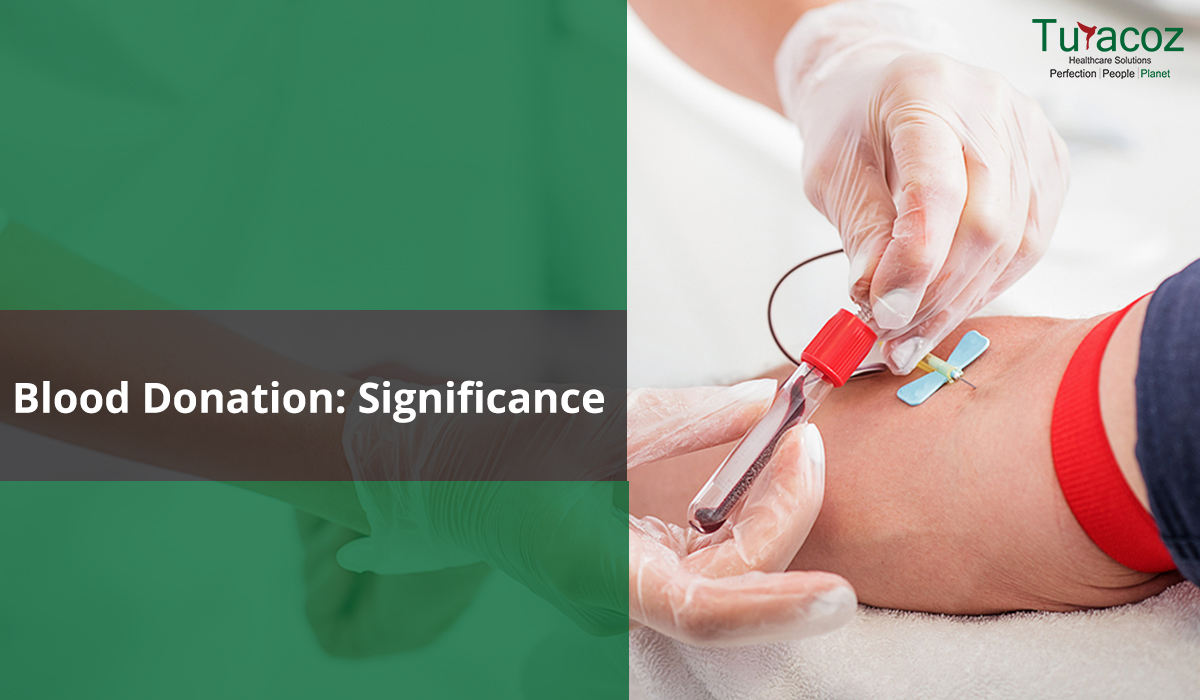The gift of blood is the gift of life. There is no other substitute for human blood. According to statistics, every two seconds someone is in dire need for blood. And only one pint of blood can save up to three lives. Data collected over a span of many years suggests that the blood type most often requested by hospitals is Type O.
Sickle cell patients are required to have frequent blood transfusions throughout their lives. And for cancer patients (with an estimate of more than 1 million new patients every year), many of them require blood, sometimes on a regular basis, during their chemotherapy treatment.
FYI: A single car accident victim can require up to 100 units of blood to survive.
Things to know about the blood donation process:
- Blood donation is safe! Hospitals/doctors/nurses make sure that a sterile needle is used only once for each individual donor and then discarded/destroyed.
- The process is simple. Mainly consisting of four steps:
- Registration
- Physical & Medical history
- Donation
- Refreshments
- A mini-physical is done for every donor, checking his/her temperature, blood pressure, pulse and hemoglobin count. Basically, to ensure that the donor is fit for donating, and if whether it is safe.
- The real process takes around 10-12 minutes. It is crucial for you to stay calm if it is your first time donating.
- The average human adult has approximately 10 units of blood in their body. At the time of donation, roughly one unit is given (don’t worry you still have enough).
- Red blood cells can be donated every 56 days (by a healthy person).
- Platelets can be donated every 7 days apart (a maximum of 24 times a year).
- All blood donations are tested for HIV/AIDS, hepatitis B & C, syphilis and other diseases, before it is transfused.
General FYI:
- Type O- red cells can be transfused to patients of all blood types.
- Type AB+ plasma can be transfused to patients of all other blood types.
Top Ten Reasons Why You Should Donate Blood (there is no denying these):
- First of all, it saves lives! What else is there to know?
- It is one of your civic duties as a responsible citizen.
- Not everyone can donate blood, it’s a blessing to have the ability to save people.
- If one day you need blood, you won’t hesitate to take it, so why hesitate to give it?
- It gives the donors a free medical checkup.
- It helps maintain an adequate blood supply in the community for secure blood transfusions.
- The feeling of satisfaction of helping others is unreal.
- Even though the cure for cancer is not discovered, yet! But donating blood helps keep someone alive while they wait for the cure.
- The real question is, why not give blood?
- Excuses are always vague, there is no logical reason as to why a healthy person should not donate blood.
Advantages of donating blood:
Donating blood is not only beneficial for the person receiving it, but it is also highly beneficial for the donor’s health.
- Lowers iron levels: The body needs iron to produce red blood cells. But too much iron in the blood can be harmful. Too much iron in one’s blood can lead to it being deposited in different organs of the body, such as the heart and the liver, and this could lead to a malfunction in the way those organs function. Donating blood can help control the level of iron in your system.
- Checks your system: Each and every person who donates blood undergoes a simple physical examination and a blood test before they can move on to donating their blood. Through these tests, hospitals can assess a person’s internal fitness and health. It is highly possible that a person could identify unknown health issues as a part of the blood donation process. The donor is tested for HIV/AIDS, hepatitis B & C, and/or any other blood-borne diseases.
- Burns calories: According to the University of California, San Diego, donating blood has been proven to burn around 650 calories per donation. Its like getting ripped without going to gym. But on a more serious note, donating blood cannot be considered as an alternative to exercise. Also, after donating blood try to hold off on going to the gym the very same day, take some rest.
Disadvantages of donating blood:
- Dizziness
- Feeling faint
- Lightheadedness
- Nausea
Note: These symptoms usually subside within 3 days of donating blood.
Turacoz Healthcare Solutions aims to spread awareness about the benefits and advantages of donating blood. We urge the people to take part in this noble act of saving lives. We wish that people would actively contribute in this ‘gift of life’ and are working hard towards achieving a healthier future for the masses.
If you wish to contact us, click here.






































